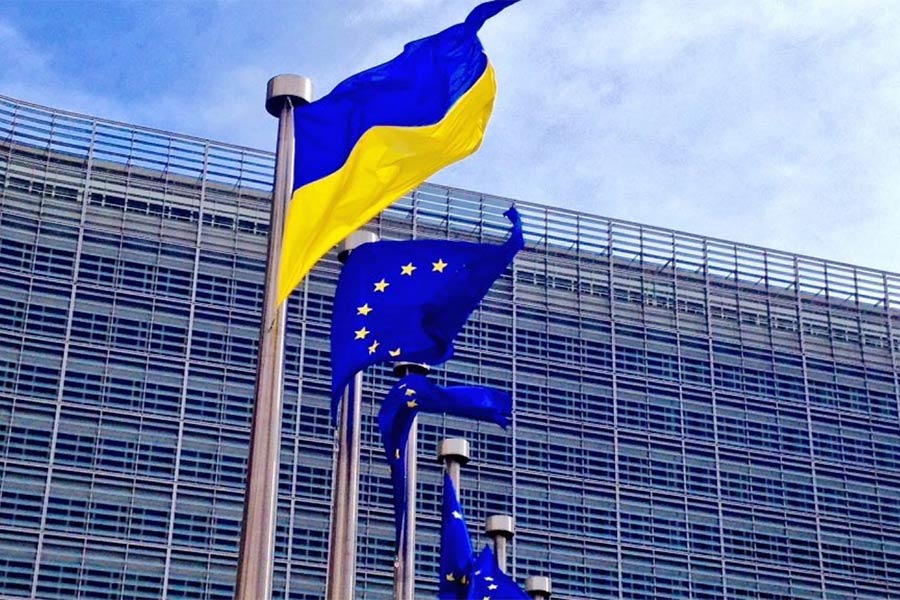To: Ursula von der Leyen
President of European Commission
Copy: Matti Maasikas
Head of the Delegation of the European Union to Ukraine
Dear Madame President,
We, the undersigned Ukrainian and international civil society organisations (CSOs) call on the European Union to support civil society engagement and incorporation of green principles into the Ukraine reconstruction process, which will go hand in hand with the country’s EU accession.
Ukraine will be able to become a prosperous European state provided that environmental issues are integrated and prioritised in Ukraine’s Recovery Plan. Drafting Ukraine’s Recovery Plan as the long-term roadmap for Ukraine must be more systematic, transparent, and participatory in order to ensure inclusiveness for recovery at the national and local levels. Moreover, civic engagement should be ensured in the Steering Committee for the Multi-agency Donor Coordination Platform.
Since the start of full-scale invasion, implementing key environmental reforms has mostly been put on hold in Ukraine. While we acknowledge the adoption of the law on waste management and the law on the national register of emissions and pollutant release, other reforms in line with the European Green Deal, which are crucial for the green reconstruction of Ukraine (for example, the law on Emerald sites, pollution prevention and control, etc.), have been suspended. At the same time, threats to the quality of the environment and nature in Ukraine – both directly from hostilities and indirectly from unsustainable activities in the backline and supporting regions – are becoming more and more serious.
Martial law has significantly limited access to information and availability of public participation tools, which are the key to the effective work of CSOs and civic engagement in the environmental impact assessment (EIA) and strategic environmental assessment (SEA) procedures. If this continues to be the case, Ukraine’s progress on environmental reforms will lack its main driver, eventually hampering the European integration of the country.
In response to electricity shortages, Ukrainian government and its international partners have focused their efforts on finding emergency solutions. Although generators that use fossil fuels have become a suitable quick fix, they are not sustainable from a long-term perspective, while supply of renewable energy equipment and financial support to scale up renewable energy production in Ukrainian communities and cities would provide a resilient source of energy for years to come.
The draft Ukraine’s Recovery Plan presented by the Ukrainian authorities in July 2022 in Lugano consisted of controversial projects such as, for example, the construction of small modular nuclear reactors; the promotion of the use of peat and wood as ‘green’ fuel at new power plants; plus forestry, agriculture and hydropower projects that may lead to the destruction of natural ecosystems.
One important deficiency of the national plan is its perception of environmental protection as a sector on its own, where projects are anticipated to be implemented in isolation by a responsible ministry. However, in principle, environmental priorities should be integrated into projects in all sectors. Contrary to the CSOs’ attempts to reach out to the responsible governmental bodies and continue work on the National plan, they were not included in inter-agency discussions for further improvements of the plan.
It is important to ensure that the international Multi-agency Donor Coordination Platform not only brings donors together, but also sets common rules and standards for transparency and accountability. Civil society is best placed to provide the checks and balances for programming, financing and implementing the reconstruction in Ukraine and thus, CSO representatives should be included in the steering committee for the platform.
During the EU-Ukraine Summit, we urge you to:
- Enforce an environmental agenda for Ukraine in line with the country’s Association Agreement and the EU accession process.
- Better engage Ukrainian and international CSOs, as well as other socioeconomic partners, in the overall decision-making processes for Ukraine’s reconstruction and in the development of the key documents (such as Ukraine’s Recovery Plan).
- Adjust the EU’s emergency support provided to Ukraine with priorities of long-term “green” reconstruction and sustainable development (for example, in the energy sector by supplying decentralised renewable energy solutions).
- Ensure CSOs and local communities’ representatives are involved in the Steering Committee for the Multi-agency Donor Coordination
We would like to take this opportunity to thank you for the support that the European Union is providing to Ukraine in countering the full-scale aggression of the Russian Federation.
We are looking forward to hearing the reaction to this letter from the high-level participants of the Summit.
Best regards,
Signed by:
International NGOs:
Mark Martin, CEE Bankwatch Network
Vít Dostál, Association for International Affairs
Denitza Petrova, Greenpeace Central & Eastern Europe
National NGOs:
Olexii Vasyliuk, Ukrainian Nature Conservation Group
Yuliia Melnyk, NGO Ekoltava
Svitlana Romanko, Razom We Stand
Andriy Martynyuk, NGO Ecoclub
Sofiya Shutiak, Land, Agrarian and Environmental Law Committee of the Ukraine National Bar Associations
Nataliya Cholovska, LCPO “Ecoterra”
Bohdan Vykhor, WWF-Ukraine
Anastasiia Zagoruichyk, Office for the Environment
Anastasiia Skok, NGO Save Dnipro
Iryna Myronova, Zero Waste Lviv
Maksym Babaiev, Ukrainian Climate Network
Kateryna Soroka, NGO Unique Planet
Download document: Open Letter from Ukrainian and international NGOs concerning green recovery of Ukraine within the EU accession process (PDF)

